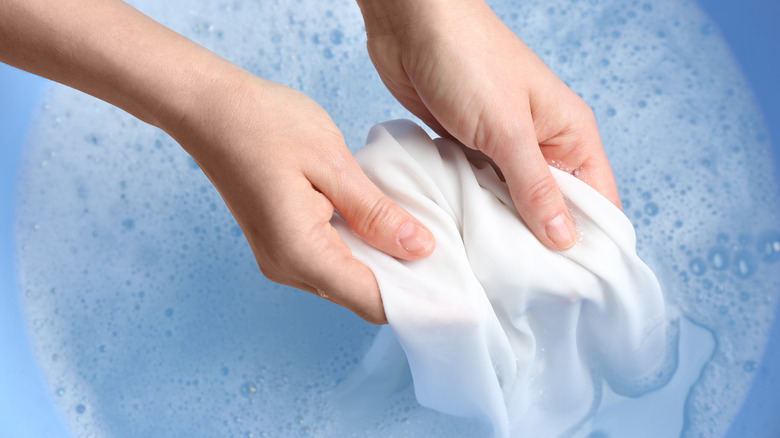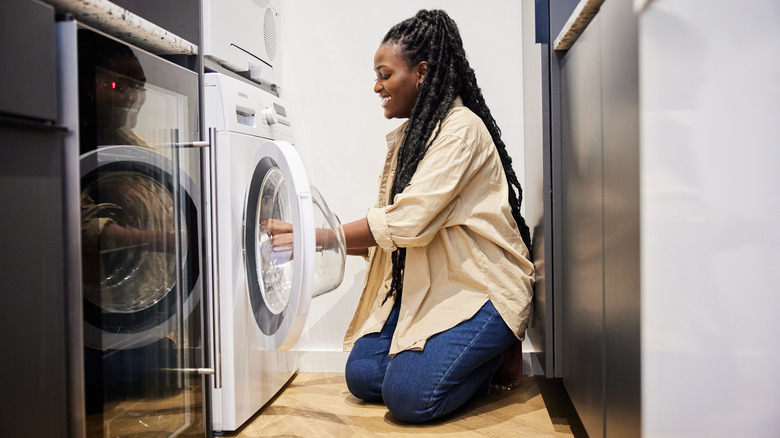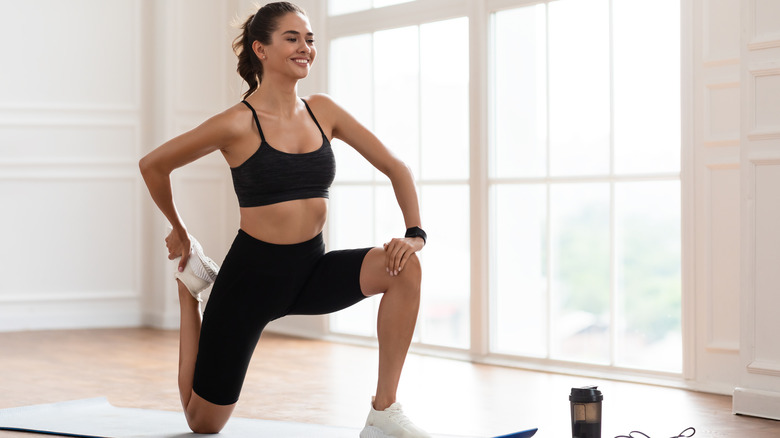Is Stripping Workout Gear A Good Idea? Our Cleaning Expert Sets The Record Straight
You may have heard of the popular laundry method that consists of "stripping" clothing to remove build-up from body oil, detergent, grime, and anything else that does not wash out of clothes during a cycle in the washing machine. People typically strip their laundry by filling a bathtub with water and adding various solutions that consist of different combinations of powdered detergents, stain removers, baking soda, and vinegar. Workout clothes are made out of different materials than most clothing items, so is it safe to strip them this way? Zachary Pozniak, co-owner of luxury dry cleaning company Jeeves NY, revealed why this may not be the best method to get your athletic clothes truly clean.
"Giving your workout gear a deep cleaning is always a good idea, however 'stripping' — which is usually a soaking-based method — is definitely not the best way to do this," Pozniak shared while speaking exclusively to House Digest. It turns out that the molecules found in most laundry cleaning agents help remove stains and grime when they are constantly being agitated by a washing machine, so soaking any clothes in these chemicals is not as effective as simply allowing the washing machine to do its job, as explained by Pozniak.
Toss your workout gear in the washing machine instead
Let's dive into exactly how this stripping method works and why it should not be used to clean workout clothes. "Most stripping recipes call for powdered laundry boosters like washing soda, baking soda, and borax, along with detergent and other supplements like vinegar," Pozniak explained. "Videos usually display the creator adding these components into a bathtub, giving them a mix, and then stirring every once in a while. The final results are usually a dark wash water and 'cleaner' clothes."
Stirring clothes by hand prevents the surfactants found in cleaning agents from working properly. "These molecules require constant motion (usually from a washer) to continue to seek out new soil to capture," Pozniak continued. "Plus, these powdered additions help supercharge the performance of laundry detergent by raising the pH of the wash water." You are better off tossing your workout gear in the washing machine and treating stubborn stains with the appropriate stain removers. Seeing the dirt and grime soak off of your clothes in the bathtub might be satisfying, but it does not actually do much to deep clean your activewear.
More tips to help protect your workout clothes
Workout clothes often consist of synthetic fibers that are not compatible with many popular laundry cleaning products, including fabric softeners. As a result, you should refrain from using it on these pieces, even when washing them in a machine. You might enjoy the smell of fabric softener and the pleasant fragrance it leaves on your workout gear. However, this laundry product can actually make synthetic fibers more prone to odor, according to Pozniak.
"Synthetic fibers are already extremely attracted to oil compared to natural fibers like cotton," the expert explained. "So, fabric softener on your workout clothes will attract even more oil, which is the main cause of malodor causing bacteria. Low pH rinse products like Tide Boost or Downy Rinse can be very effective with mitigating malodor on workout clothing." These two alternatives recommended by Pozniak could help keep your activewear smelling great after each wash.


